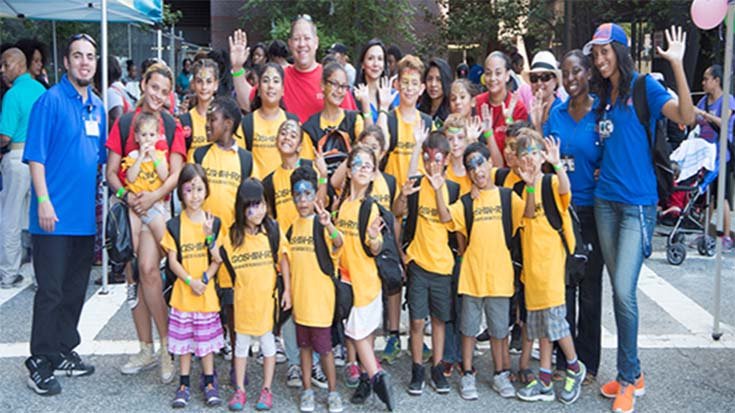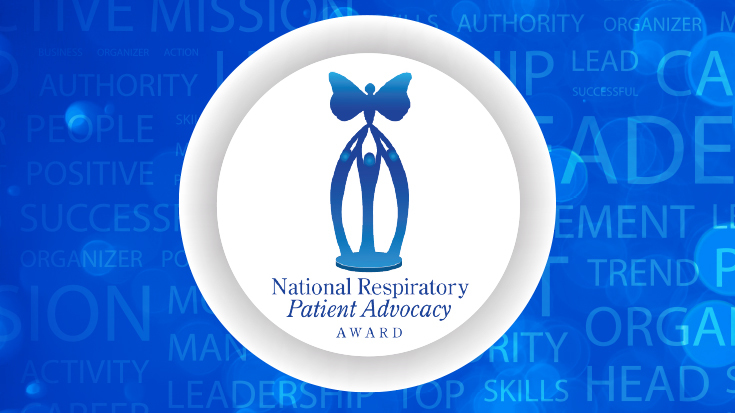
Like many people in the respiratory care profession, Linda Nozart, MPH, BSRC, RRT, AE-C, knew nothing at all about the field before she hit college. But for her, one simple word on a poster hanging on the door of the RC program at Long Island University (LIU) in Brooklyn, NY, sold it.
Once she read that RTs help people with breathing problems like asthma, she knew she’d found her career.
“I was like, I have asthma, and I like to help people,” she said. “So it made sense to me to apply to the program, and I’ve been an RRT since 2008.”
Heartbreaking case
Nozart says her asthma was so bad as a child that for several years her Haitian immigrant parents made her sleep in their bed so they could monitor her breathing in the night.
“They knew very little about the disease and were afraid I was going to die in my sleep,” she said.
The incident that drove her to make asthma her life’s work, though, took place in 2010 when she was covering the pediatric ER during the night shift at the level one trauma center where she was working at the time.
She was placing a five-year-old boy on a ventilator for status asthmaticus when she learned that he ended up in the hospital after suffering a severe attack while in the care of his grandmother.
“She was in the kitchen cooking, and he was playing on the living room floor,” recalled Nozart. “She did not realize he was having an asthma episode, and by the time she realized, he was completely blue.”
As she worked on the child, she looked up and caught the grandmother’s eye.
“I felt her heart break in half,” she said. “I felt so bad for her.” Nozart had a feeling the boy would not make it through the night, and she was unfortunately right.
When she went home from her shift, she couldn’t stop crying, and her husband asked why since she saw unspeakable sorrow all the time in her job.
“I said, strangely it’s not for the boy, but for the grandmother, because she now has to live for the rest of her life with the fact her grandson died in her care, and that broke my heart,” she told him. “I never wanted to see this happen to another family, so I got certified as an asthma educator the same year, and that sent me on the path to get my masters of public health to fully understand my ‘frequent flyer’ patients.”
Her mission to specialize in asthma management was furthered during her time at LIU. As a graduate assistant, she got the opportunity to serve as program director for the university’s Brenda Pillors Asthma Education Program, a self-management program launched in 2008 with a grant from the CDC.
By the time graduation rolled around and she saw a job opening for an administrative director of the asthma program at Woodhull Medical and Mental Health Center in Brooklyn, she had no doubts it was exactly what she was looking for.
A good match
“My role was originally meant for a nurse, but I matched the role because I went back for my master’s in public health and started with volunteer experience as a graduate student,” she explained. “This is what made my resume stand out as an RT.”
The job is vast and varied. In addition to overseeing daily operations of the program, including budgeting, supervising the team, developing and managing grants, and reviewing and updating grant program protocols, she reviews quarterly quality improvement reports for providers to ensure they follow national guidelines for asthma. Nozart also serves as the asthma case manager for complex cases.
Furthermore, she provides in-service presentations to clinicians and asthma education to partner providers and organizations, represents the program in regional and state Department of Health conferences, and networks and promotes program services to the community. She is the lead consultant in all asthma initiatives at the hospital.
Community health workers capture her heart

Her role as a trainer for the community health workers (CHWs) who assist the program in helping asthma patients in the neighborhood, though, has really captured her heart.
“The first thing I had to do was research truly what a CHW was and their scope of practice,” she said. “It was a little challenging to lead a team that had members that did not come from a clinical background.” But she soon learned how to put on her public health hat to empower the team to advocate for the community they all serve, regardless of their walk of life.
“They reflected the community and wanted to help those with uncontrolled asthma improve their quality of life, and that meant everything to me as a person that has a passion for asthma self-management education,” said Nozart. She invested the time it would take to break down the asthma education materials into a format that the CHWs could use to guide patients successfully down the path to asthma control. She has loved seeing what the program has become.
“The community trusts us, and we get to see real progress by providing home assessments and linkage to specialty practice and social services, keeping them from unnecessarily having to return to the ER for asthma,” she said.
Her work with the program also led to a new opportunity in the hospital. “As a result of successfully integrating CHWs onto the interdisciplinary team, I was the lead trainer for the hospital system’s Medicaid DSRIP 3dii asthma home-based initiative,” she said.
Little engine that could
Nozart says the challenges she faces in her role as administrative director of the asthma program mainly revolve around making sure that the leadership team continues to be aware of the impact they are making in the community.
“We are a little program that does big things for the community, so we constantly have to engage our executive leadership team to not forget about the ‘little people’ that need support in regards to sustaining program resources,” she said.
She thinks of her program as the “little engine that could,” though, and is determined to keep moving forward despite the challenges that do come their way. As for rewards, she says thinking outside the box to help her patients is priceless.
“Prior to COVID, we were physically in patients’ homes and actively got to see positive lifestyle adjustments that gave patients a better quality of life,” she said.
Linda Nozart offers three great tips for anyone who might like to pursue a job like the one she has today –
- I strongly advise anyone interested to first get certified as an asthma educator. Anyone hiring for this position will require this to get reimbursed for program services from insurance or funders. It will be the first thing they look for when hiring.
- I also advise having experience in health promotion and community/public health. “Selling” health is not easy.
- You have to have strong emotional intelligence and must understand the community you wish to serve. You will need patience, empathy, and passion to carry you.
“Most patients with uncontrolled asthma have ‘onion layers’ of social and economic barriers towards health,” she said. “You genuinely have to understand someone’s journey to guide them toward asthma control, but seeing someone’s quality of life improve because of your work is very rewarding, and I love what I do.”
Interested in earning the Asthma-Educator Certified credential? The AARC’s Asthma Educator Certification Preparation Course can ensure you’re ready to pass the test, and you’ll earn 11 hours of CRCE at the same time.
Email newsroom@aarc.org with questions or comments, we’d love to hear from you.












